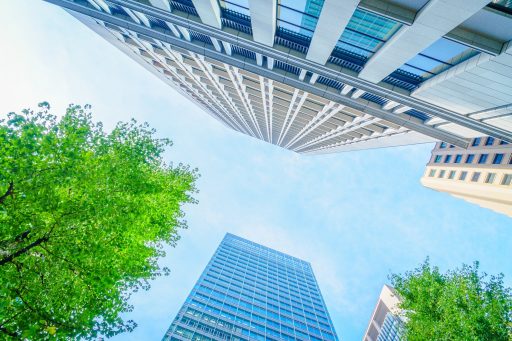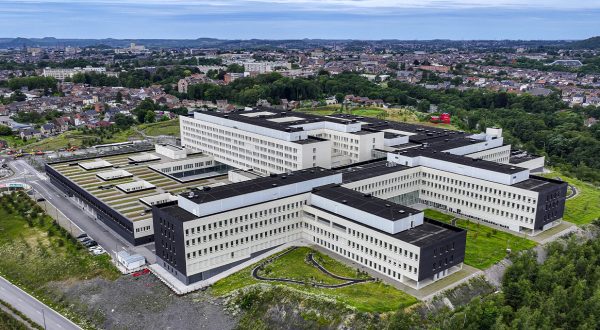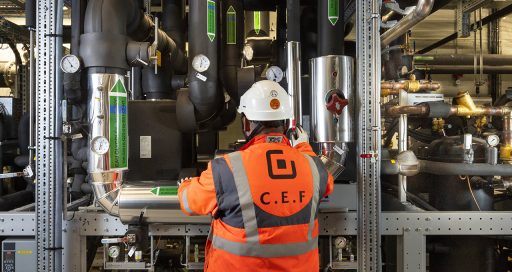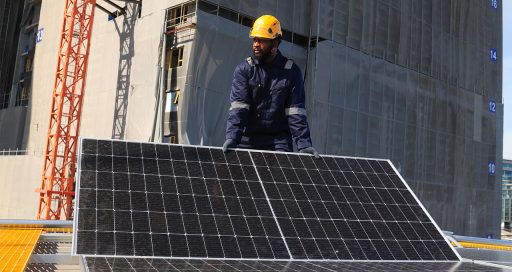The growing importance of sustainability issues in real estate is having a knock-on effect on investors, who are subject to increasingly stringent requirements under European legislation. This article looks at how Greenaffair, a VINCI Energies business unit that specialises in this complex area, analyses the situation.

ESG (environmental, social and governance) criteria – non-financial analysis standards used to assess the extent to which sustainable development and long-term requirements are integrated into corporate strategy and performance – today underpin decision-making processes for all major economic sectors. First among these, the building sector alone accounts for 43% of annual energy consumption in France and generates 23% of French greenhouse gas (GHG) emissions.
The increasing importance of accountability in property asset valuation has not escaped the notice of investors, as might be expected. Since October 2019 in France, real estate venture capital funds have been eligible for the real estate “SRI” (socially responsible investment) label, a government tool that combines financial and non-financial performance, making it easier to identify funds incorporating ESG-related criteria.
However, the strong regulatory pressure surrounding energy transition and decarbonisation issues is accelerating the convergence between venture capital and accountability criteria, requiring a substantial technical upgrade from investors. It’s not just about understanding the laws produced by the legislator but also about making them resonate with the operational requirements of building trades.
Support for asset managers
In order to help financiers and property developers to take ownership of these new accountability criteria relating to real estate and to familiarise themselves with often highly complex performance frameworks, Greenaffair, an engineering consultancy specialising in environmental issues, in June 2022 set up a Responsible Investment and Finance (IFR) business line. “Sustainable investment is set to become the new standard. All the players in the building industry will have to incorporate it quickly. To manage the growing expectations of investors in terms of ESG, our goal is to offer asset managers, investors and asset and portfolio management firms comprehensive political, legal and technical support,” explains Pierre Cadoret, head of the IFR business line.
“Environmental compass”
Adopted in 2020 by the European Commission and in application since 2021, the EU taxonomy (or green taxonomy) is the first regulation to make it possible to establish a link between the technical aspect of an economic activity considered sustainable and the recording of the investment and revenue it generates: sales, capital expenditure (CapEx) and operating expenses (OpEx).
Seen as the new “environmental compass” of major economic sectors in Europe, the regulation was designed to help direct investment towards sustainable activities in 10 main macro-sectors (including real estate), broken down into 88 sub-segments.
“Sustainable investment is set to become the new standard.”
It defines what is meant by sustainable activities according to six main environmental objectives: climate change mitigation, the sustainable use and protection of water and marine resources, pollution prevention and control, climate change adaptation, transition to a circular economy, protection and restoration of biodiversity and ecosystems.
In the real estate sector, a building that can present a Class A energy assessment or that is part of the 15% most efficient national or regional housing stock in terms of primary energy consumption will be defined as “sustainable” and should serve as a benchmark in the sector.
“Based on the characteristics of the real estate or building project (constructed before or after 31 December 2020; commercial or residential; with a surface area of less or more than 5,000m², etc.), the tables contain 5-20 technical screening criteria, which determine whether or not a property asset is Taxonomy-aligned and what its alignment potential is,” explains Pierre Cadoret.
Requirement to inform… and to prove
Financial players like asset managers fall within the scope not only of the Taxonomy but also of the Sustainable Finance Disclosure Regulation (SFDR), the financial twin of the
Non-Financial Reporting Directive (NFRD), which in 2017 introduced a non-financial reporting requirement for businesses based in European Union countries.
It entered into force in March 2021 and since 2023 has required funds to prove that their products are covered by sustainable investment classifications. They can do this either by reporting on the integration of social and/or environmental criteria into their investment process or by providing evidence of a positive impact.
In fact the NFRD will soon be replaced by the Corporate Sustainability Reporting Directive (CSRD), which will be phased in as of 1 January 2024. Its scope of application will extend to all companies listed on regulated European markets as well as listed or non-listed companies exceeding two of the three following thresholds: 250 employees; €40 million in sales; €20 million in total assets.
“Under the CSRD, reporting requirements will be strengthened and standardised. Using harmonised European standards as a basis, companies will need to publish detailed information about their risks, opportunities and material impacts in connection with social, environmental and governance issues. The green taxonomy only concerns the ‘E’ element of ESG for the time being,” notes Pierre Cadoret.
In its 2022 index, the Green Building Observatory (Observatoire de l’immobilier durable, OID), which assesses progress in ESG practices, shows that issues related to carbon emission reduction and energy take priority over social and governance criteria. “An ‘S-focused’ taxonomy could follow soon. The governance (‘G’) component should ideally cut across the two other criteria, forming a common base,” says the head of the IFR business line at Greenaffair.
14/09/2023





